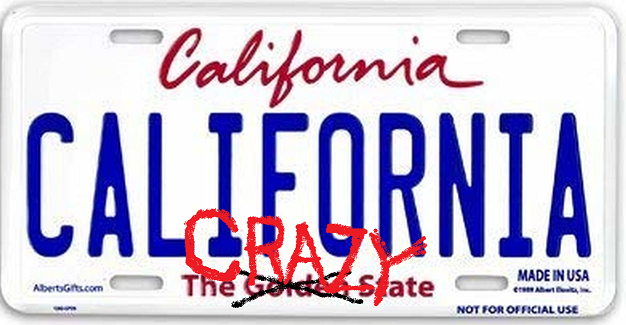
Mimics many major elements of the recent Congressional stimulus relief “Heroes Act”
On May 11, 2020, California House Banking and Finance Committee Assemblywoman and Committee Chair, Monique Limon (D) of Santa Barbara, introduced AB2501 “COVID-19: homeowner, tenant, and consumer relief Law of 2020”. Within it’s pages are proposals to create a moratorium on repossession, foreclosures during the COVID-19 period and an additional 180 days (6 months) after the “the emergency related to the COVID-19 disease has ended.” Unlike it’s Washington counterpart, this could very well pass in the Democrat controlled House and Governors House.
The bill, originally drafted on February 19, 2020, was a mere addition to the California Financial Code; would add Title 19 (commencing with Section 3273.01) to Part 4 of Division 3 of the Civil Code, and to add Sections 22698 and 23039. which merely requested a revision to reporting deadlines.
This proposal mimics many elements of the recently released “Heroes Act” that congress introduced this morning, illustrating possible coordination between the party democrats at a broader level. California, being the most populous states with 39M people and also probably the most “progressive” often sets the tone in political action in like-minded states. It may evolve as the localized moratoriums and shelter in place rulings have, at the state levels. If passed, create a blueprint for what Congress is very unlikely to achieve with their 1,800 bloated $3.1T package.
This is a dramatic revision to the original bill is now in the California House Banking and Finance Committee as of May 12, 2020. The period of coverage would be ““COVID-19 emergency” means the period that begins upon the date of the enactment of this title and ends on the date that the state declares the emergency related to the COVID-19 disease has ended.”
If enacted, it would;
- Require the mortgage servicer to provide the forbearance requested for 180 days and to extend that timeframe if the borrower affirms that they continue to experience hardship.
- This bill, with respect to vehicle-secured credit obligations, would prohibit a servicer of vehicle-secured credit from taking any action to repossess a mobilehome or motor vehicle that secures a loan during the COVID-19 emergency and for the 180-day period thereafter.
- A servicer of vehicle-secured credit shall provide the forbearance requested pursuant to subdivision (a) for a period of 90 days. If the borrower affirms that they continue to experience hardship within the 30 days prior to the expiration of the initial forbearance period, the servicer of vehicle-secured credit shall extend the forbearance period upon request of the borrower for an additional 90 days. Those forbearance periods shall continue to be extended upon request of the borrower throughout the duration of the COVID-19 emergency and the 180-day period following that emergency.
- CHAPTER 3. Vehicle-secured credit obligations
3273.32.
(a) Before the completion of a forbearance period provided by this article, the holder of a vehicle-secured credit obligation shall evaluate a consumer’s ability to return to making regular payments.
(b) If the consumer is able to return to making regular payments based on the evaluation required by subdivision (a), the holder of the vehicle-secured credit obligation shall:
(1) Modify the consumer’s vehicle-secured credit obligation to extend the term for the same period as the length of the forbearance, with all payments that were not made during the forbearance distributed at the same intervals as the consumer’s existing payment schedule and evenly distributed across those intervals, with no penalties, late fees, or additional interest accrued beyond the amounts scheduled or calculated as if the consumer made all contractual payments on time and in full under the terms of the vehicle-secured credit obligation contract in effect at the time the consumer entered into the forbearance, and with no modification fee charged to the consumer.
(2) Notify the borrower in writing of the modification required by paragraph (1), including provision of a new payment schedule and date of maturity, and that the consumer shall have the election of prepaying the suspended payments at any time, in a lump sum or otherwise.
(3) Not require the consumer to waive any other claim provided by law in order to accept the terms of a modification.
(c) If the consumer is not able to return to making regular payments based on the evaluation required by subdivision (a), the holder of the vehicle-secured credit obligation may proceed with a written notice of intent to repossess the vehicle as required by law only after the expiration of the COVID-19 emergency and the 180-day period following that emergency.
3273.33.
Notwithstanding Sections 2983.2 or 2983.8, or any other provision of law, no deficiency judgment shall lie in any event after the sale or other disposition of a mobilehome or motor vehicle for failure by a consumer to make a payment that was due during the COVID-19 emergency or the 180-day period following that emergency unless the servicer of the vehicle-secured credit obligation has complied with all provisions of this chapter.
· CHAPTER 2. Mortgages
Article 1. Residential Mortgage Loans
3273.10.
(a) A mortgage servicer, mortgagee, trustee, beneficiary, or authorized agent shall not do any of the following during the COVID-19 emergency and the 180-day period following that emergency:
(1) Commence or continue any judicial foreclosure action.
(2) Record a notice of default pursuant to Section 2924.
(3) Take any action to evict a person following a foreclosure.
“Monkey See, Monkey Do, Coming to a State Near You Soon Too?”
California Residents – Please Contact Your Local Representative and Make Your Opinion Heard!










